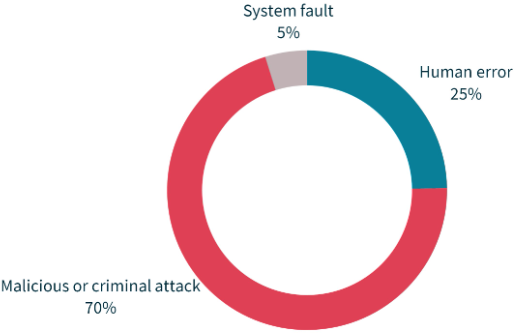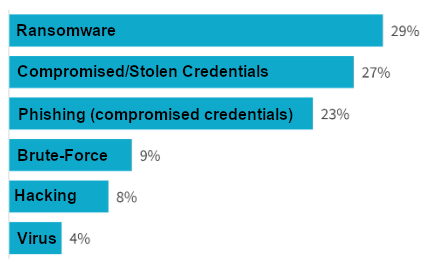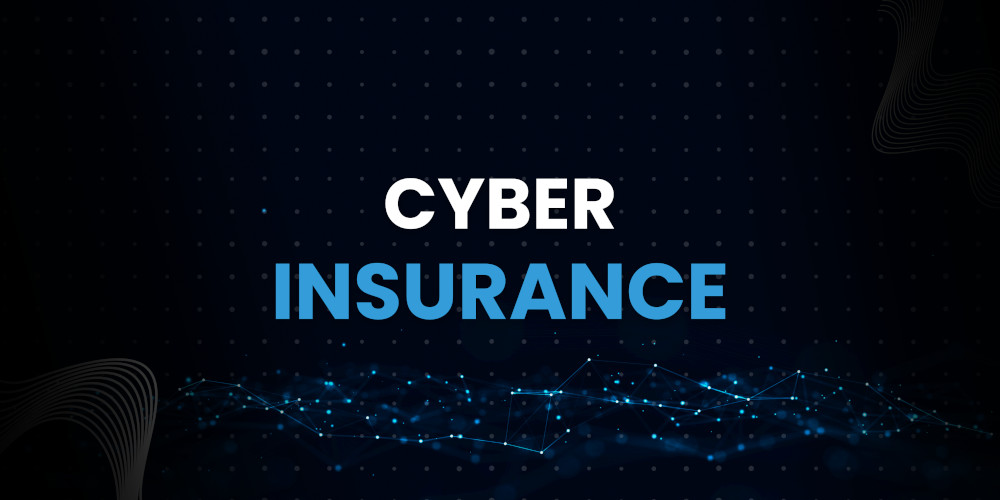We are living in a world where technology is driving businesses of all sizes and cybersecurity has become a top priority. Small business owners are no exception to the threats of cyberattacks and data breaches. The stakes are high, and the consequences can be devastating. Fortunately, there’s a powerful ally in the fight against cyber threats: cybersecurity insurance. In this comprehensive guide, we’ll explore what cybersecurity insurance is, why it’s important, what it covers, and how to choose the right policy for your small business.
Jump to a Section in this Guide
- What Is Cyber Insurance?
- Why Is Cyber Insurance important for small business?
- What Risks Does Cyber Insurance Cover?
- What Risks are Excluded from Coverage?
- Cyber Insurance vs. Cyber Defence
- Choosing the right cyber Insurance Policy
- Who Needs Cyber Insurance
- What does Cyber Insurance Exclude?
- How to Get Cybersecurity Insurance
- Determining your coverage needs
- Book an IT Audit
Cyber Security Incidents on the Rise
The Australian Cyber Security Centre (ACSC) saw an increase in financial loss due to Business Email Compromise (BEC). There was also an increase in ransomware attacks which released the personal data of hundreds of thousands of Australians. A full report can be found on the Cyber.gov.au website.

%
Vulnerabilities
A 25% increase in the number of publicly reported software vulnerabilities (Common Vulnerabilities and Exposures – CVEs) worldwide.
Of the 497 notifications received between July and December 2022, 45% of the data breaches were cyber security incidents. View the breakdown of the incidents below:

%
Increase
Financial loss seen a 14% increase
- Small businesses >$39,000
- Medium businesses >$88,000,
- Large businesses >$62,000.
%
Top Cybercrimes
Fraud, online shopping and online banking were the top reported cybercrime types, accounting for 54 per cent of all reports.
What Is Cyber Insurance?
Cybersecurity insurance, often referred to as cyber insurance, is a financial product designed to help businesses mitigate the risks associated with cybercrimes such as cyberattacks and data breaches. These policies are tailored to protect organisations from the financial fallout of internet-based threats that affect IT infrastructure, information governance, and information policy—areas typically not covered by traditional commercial liability policies.
Think of cyber insurance as you would insurance against physical risks like fires or natural disasters. It steps in to cover the losses a business may suffer when faced with a cyberattack.
Why Is Cyber Insurance Important for Small Businesses?
The importance of cyber insurance cannot be overstated, especially for small businesses. Here’s why it’s crucial:
- Rising Cyber Threats: As the frequency and sophistication of cyberattacks continue to grow, businesses, regardless of their size, are at risk. Small businesses are often seen as low-hanging fruit by cybercriminals.
- Protecting Finances: The financial impact of a cyberattack can be crippling. From loss of revenue to legal expenses and customer refunds, the costs can quickly spiral out of control. Cyber insurance steps in to provide financial support during these crises.
- Reputation Management: A data breach can tarnish a business’s reputation. Cyber insurance helps cover the cost of managing and mitigating the reputational damage that can occur after a breach.
- Legal Liability: Businesses may be legally liable for the loss or theft of customer data. Cyber insurance can help cover legal fees and settlements in such cases.
To illustrate the importance of cyber insurance, consider the 2011 breach of Sony’s PlayStation Network. Sony incurred costs exceeding $171 million due to the attack, costs that could have been covered by a cyber insurance policy.
What Risks Does Cyber Insurance Cover?
- Customer Notifications: The cost of notifying customers of a data breach, especially if personally identifiable information (PII) is involved.
- Data Breaches: Incidents where personal information is stolen or accessed without authorisation.
- Data Recovery: Costs associated with recovering compromised data.
- Ransom Demands: Payments to hackers in ransomware attacks.
- System Damage Repair: Expenses for repairing damaged computer systems.
- Attack Remediation: Legal fees and hiring of experts to remediate cyberattacks.
- Liability for Business Partners: Coverage for losses incurred by business partners with access to your data.
Cyber Risks Excluded from Coverage
- Poor Security Practices: Breaches resulting from inadequate security measures within your organisation.
- Prior Breaches: Incidents occurring before obtaining a policy.
- Human Error: Cyberattacks caused by employee mistakes.
- Insider Attacks: Loss or theft of data due to employees intentionally causing incidents.
- Preexisting Vulnerabilities: Breaches stemming from known vulnerabilities not addressed.
- Technology Improvements: Costs related to enhancing technology systems.
Cyber Insurance vs. Cyber Defence
It’s essential to understand that cyber insurance is not a substitute for robust cyber defence measures. While all businesses should consider cyber insurance, it should complement, not replace, strong cybersecurity practices. Insurers often assess an organisation’s cybersecurity posture when issuing a policy, and a solid security strategy can lead to better coverage and lower premiums.
Choosing the Right Cyber Insurance Policy
- Policy Details: Review policy details to ensure they align with your business needs and provide protection against known and emerging cyber threats.
- First-Party vs. Third-Party Coverage: Determine which type of coverage suits your business’s needs.
- Industry Expertise: Seek insurers with experience in your industry.
- Risk Assessment: Work with insurers who can accurately assess your risk level.
- Coverage Limits: Choose coverage limits that align with your potential exposure.
- Premium Costs: Understand the cost implications of different coverage options.
Who Needs Cybersecurity Insurance?
Cybersecurity insurance is essential for various businesses, especially those that:
- Store sensitive data online or on computers.
- Have large customer bases.
- Generate substantial revenue or possess valuable digital assets.
If you’re unsure whether your business needs cyber insurance, consult a business insurance agent to assess your risk level and explore potential premiums.
What Does Cybersecurity Insurance Exclude?
Cyber insurance typically excludes:
- Property Damage: Damage to physical assets caused by a cyber incident.
- Intellectual Property Loss: Loss of intellectual property and associated income.
- Crimes and Self-Inflicted Incidents: Coverage for businesses charged with cyber-related crimes.
- Preventive Measures: Costs for proactive cybersecurity measures.
How to Get Cybersecurity Insurance
Determining Your Coverage Needs
While small businesses often carry around $1 million in cybersecurity coverage, your coverage needs may vary. Consult with an insurance agent to assess your specific risks and determine the appropriate coverage level. While premiums can be significant, they are a wise investment compared to the potential costs of recovering from a cyber incident.
Cyber insurance is a vital tool in safeguarding your small business against the ever-evolving landscape of cyber threats. It complements your cybersecurity efforts and provides financial support when you need it most. To ensure your business’s resilience in the digital age, consider cyber insurance as a crucial part of your risk management strategy.
It’s worth noting that insurance companies often require some preventative controls to be in place to qualify for coverage. This is where KeyTech can make a significant difference. Our experts can assess your current cybersecurity posture, identify vulnerabilities, and implement the necessary preventive measures to bolster your defences. Whether it’s firewall configurations, employee training, or network monitoring, KeyTech has the expertise to fortify your digital fortress.
If you’re unsure about your business’s cybersecurity readiness, consider scheduling an IT audit with KeyTech. Our assessment will check the security of your systems, pinpoint potential weaknesses, and provide tailored recommendations to enhance your protection. In the world of cybersecurity, being proactive is the key to staying ahead of threats, and KeyTech is here to help you navigate the digital landscape safely and securely.
Book an IT Audit
Let's explore your business' security requirements together. Complete the form below to arrange your complimentary consultation and receive a quotation for our premium business data security & productivity solutions. With us on board, you can rest assured that your business is in good hands.

